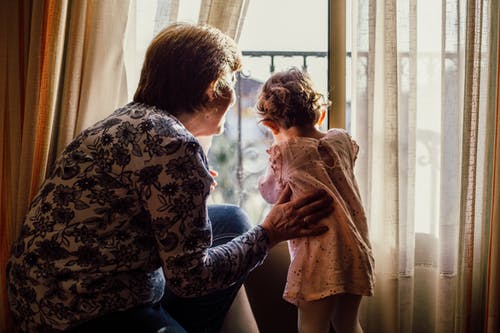I doubt anyone is surprised to learn that as a result of the opioid epidemic, vast numbers of young children are being raised by relatives instead of a parent. Most often, it’s the grandparents. The parents are unable to care properly for their kids, so another family member has to step in.
This is a re-run of what happened a few decades ago during the crack epidemic, for essentially the same reasons. It’s especially common in states hit hard by drug use, such as Ohio, where some 27,000 children were removed from their homes just last year. About a quarter were taken in by family members.
‘They’re My Safe Place’: Children of Addicted Parents, Raised by Relatives
This time around society is (very) slightly better prepared for the task. Nonprofit foundations and other grantmakers have recognized the emerging need to support older persons who unexpectedly find themselves burdened with raising another set of kids, often their own grandchildren. As you might imagine, it ain’t easy. An example of such programs:
Grandparents Raising Grandchildren
At least there is less hysteria about the long-term outcomes. When crack first hit, in the inner cities, disrupting families by the thousands, we were subjected to panicky predictions about the fate of a generation of “crack babies” whose extreme physical and psychological needs would surely overwhelm the social safety net.
For instance, conservative columnist Charles Krauthammer insisted that the children of crack-using mothers represented the equivalent of “a bio-underclass, a generation of physically damaged cocaine babies whose biological inferiority is stamped at birth.”
Turned out not to be the case. Krauthammer, a trained physician and psychiatrist, should have suspected as much. The epidemic was too new, our experience too limited, our data inadequate to support such wide-ranging conclusions. He was guessing. And apparently he wasn’t that good at predictions.
I recall asking a senior obstetrics nurse at the city’s largest public hospital for an opinion on the subject. To her, crack-addicted moms weren’t all that different from other drug patients they’d seen, including those involved with heroin and PCP. “It’s still all about pre-natal care,” she explained. “Getting the women involved, getting them to comply. The drug itself? that doesn’t make that much difference.” Unless, she added, we’re talking about alcohol. “Now that can do serious damage.”
Here’s a piece from The Atlantic on the difference between attitudes then and now:
What the ‘Crack Baby’ Panic Reveals About The Opioid Epidemic
It’ll still be a massive challenge for relatives to meet unaided. Let’s do what we can to help them, okay?












